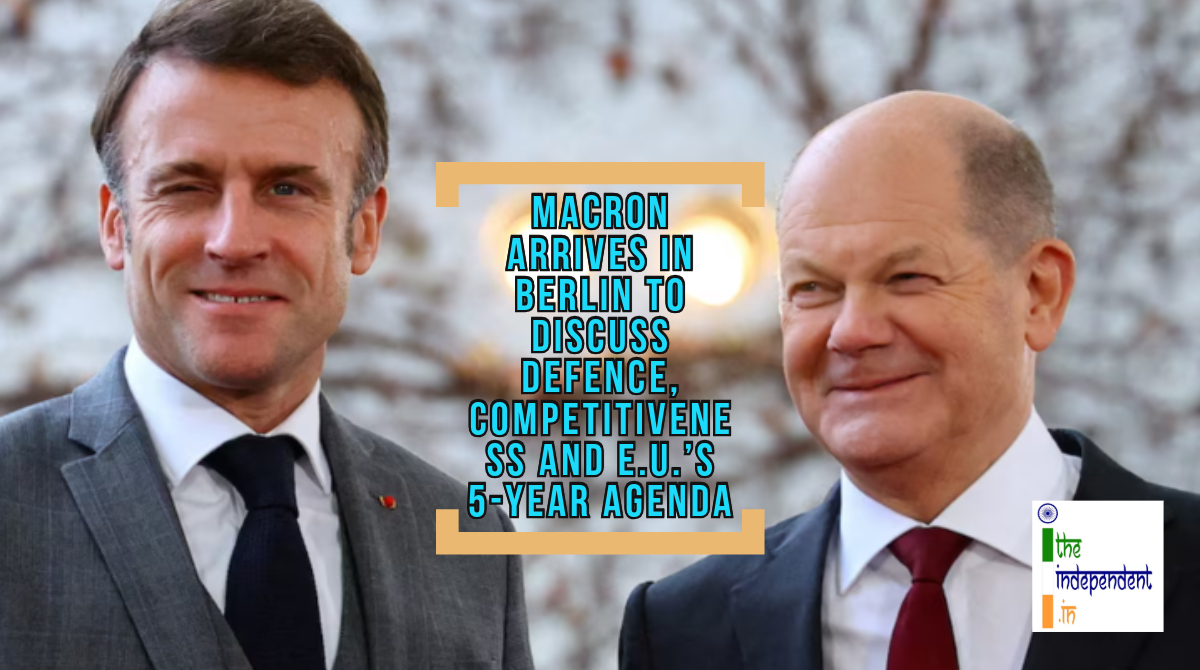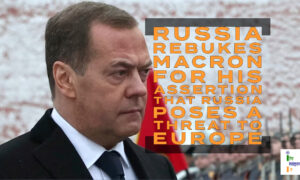
The French Presidential State visit to German focusses on further strengthening the relationship between the 2 nations, crucial for E.U. policy decisions
The President of France – Emmanuel Macron, arrived in Germany today, i.e., Sunday, 26th May’24, for a 3-day State visit, culminating in a bilateral cabinet meeting as the European Union’s (E.U.’s) 2 largest powers aim to display unity ahead of next month’s E.U. Parliamentary elections.
This trip, covering Berlin, Dresden and Münster is the first French Presidential State visit to Germany in 24 years. The focus of the visit is on further strengthening the relationship between the 2 nations, which is crucial for E.U. policy decisions, especially in the face of significant challenges such as Russia’s invasion of Ukraine, the Gaza war and the potential re-election of Donald Trump as President of the United States (U.S.) in November.
Despite differing leadership approaches and public disagreements on topics ranging from defence to nuclear energy, Macron and the Chancellor of Germany – Olaf Scholz, have recently found common ground on several issues, including fiscal policy and energy market subsidies. This collaboration has enabled the E.U. to negotiate deals more effectively and present a unified stance.
Trump is a less reliable ally for Europe compared to the present President of the U.S. – Joe Biden. Earlier this year, Trump suggested he would not protect North Atlantic Treaty Organisation (NATO) members from a Russian attack if their contributions to the alliance were insufficient, even encouraging Russia to act freely. Recently, several countries have resumed funding the agency, including Austria and Germany.
France, a nuclear power, has advocated for a more self-reliant Europe in defence matters and has been critical of Germany’s decision to purchase mostly American equipment for its European Sky Shield Initiative air defence system. Germany argues that there is no credible alternative to the U.S. military umbrella and that Europe cannot afford to wait for a domestic defence industry to develop in response to threats like Russian aggression.
Macron, accompanied on his trip by his wife Brigitte, will start his visit by meeting the President of Germany, Frank-Walter Steinmeier, in Berlin before walking through the landmark Brandenburg Gate with the City’s Mayor – Kai Wegner. The next day, he will visit Dresden, delivering a speech at the Frauenkirche, which was destroyed during World War II. On Tuesday, he will proceed to Münster.
The most significant part of Macron’s visit will be the cabinet meeting on Tuesday in Meseberg, near Berlin, where both governments will work to find common ground on defense and competitiveness. They will also seek to agree on the E.U. agenda for the next five years, particularly in light of the expected strong performance of the far-right in the parliamentary elections on June 6-9, which could complicate E.U. decision-making.







